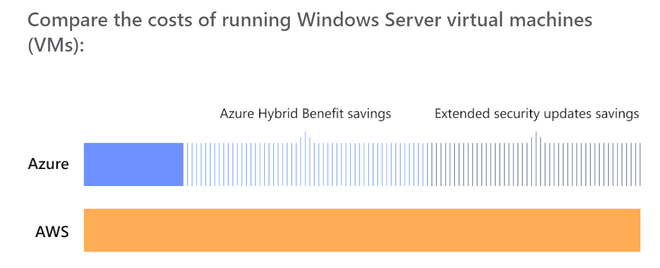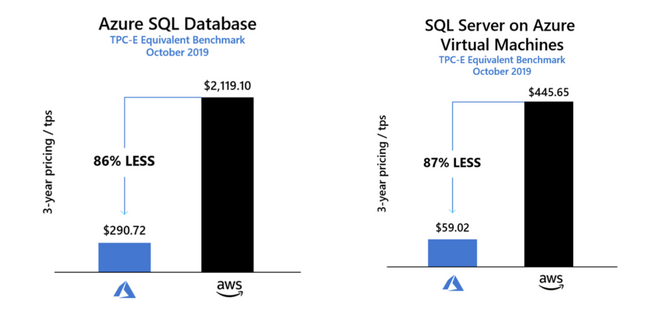This post has been republished via RSS; it originally appeared at: New blog articles in Microsoft Tech Community.

Why did I start this article with the wine? Because a similar logic applies for server licensing in the cloud, but there is no corkage fee. You can dramatically decrease your cloud expenses by just bringing your own server licenses (BYOL) to the cloud.
The benefit that allows Microsoft customers to bring their server licenses to the cloud differs in Azure than with other cloud providers – both in name and use. For 3rd party clouds (such as AWS, GCP and others), this BYOL benefit is known as License Mobility. For the Microsoft Azure cloud, this BYOL benefit is referred as the Azure Hybrid Benefit. This benefit is available to customers who own eligible SQL Server and/or Windows Server licenses with active Software Assurance or the equivalent qualifying subscription licenses.
What is the difference between Azure Hybrid Benefit and License Mobility?
They key difference is that with Azure, customers have more options than with any other cloud. For example, there is no License Mobility benefit for Windows Server with other clouds, but you can bring your Windows Server licenses to Azure with Azure Hybrid Benefit. For Windows Server Datacenter Edition you can deploy the same license twice: once on-premises and another time in Azure. It is like doubling the amount of wine you have in stock!
The table below summarizes the difference between Azure Hybrid Benefit and License Mobility, it also includes some other benefits available only in Azure.
|
Cloud Provider: |
Microsoft Azure |
Other cloud providers |
|
Benefit name: |
Azure Hybrid Benefit |
License Mobility Benefit |
|
Infrastructure as a Service (IaaS): Windows Server Virtual Machine (VM) |
Extra benefits in Azure:
|
|
|
IaaS: SQL Server in VM |

Extra benefits in Azure:
|

|
|
Database as a Service (DBaaS): SQL Server database as a Service |

1 = 4
|
|
* For the migration period, you may need SQL Server licenses to cover both on-premises and cloud environments. If SQL Server is deployed on Windows Server, the only option to acquire the Windows Server license for VMs deployed on 3rd party clouds is through the cloud/hosting solution providers.
The differences between Azure Hybrid Benefits and License Mobility, plus other benefits listed above are why Azure is the most cost-effective cloud for Windows Server and SQL Server. In many cases deploying Windows Server and SQL Server workloads to Azure could bring up to 80% savings comparing with other clouds:
Another critical factor to consider when evaluating the cost of a solution is the price/performance (or cost per transaction) ratio. Azure is the leader on this parameter as well. You can find a detailed report comparing the Azure SQL vs. SQL in AWS cost/performance metrics here.
Finally, BYOL savings can be combined with reserving VM instances and Azure SQL DB capacity for 1 or 3 years, enabling even further savings. Learn more about reserved instances here.
Are you leveraging all these benefits to get the best deal on running your Windows Server and SQL Server infrastructure in the cloud?
_______
I want to say Big Thank You to my colleagues Ivan Ieshu, Rola Darwish, Hilary Burt for reviewing the article and providing valuable feedback.
_______
This blogpost is for information purposes only, for the official Microsoft documentation on Azure Hybrid Benefit and License Mobility please check these links:
- Azure Hybrid Benefit
- Azure Hybrid Benefit for Windows Server
- License Mobility through Software Assurance
- Product terms





